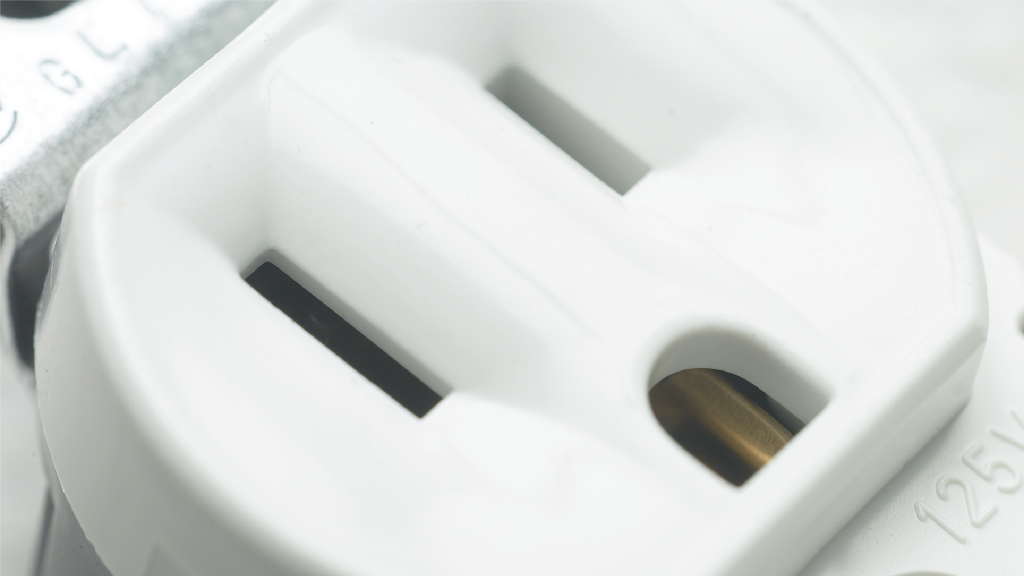What is a GFCI?

What is a GFCI outlet?
A ground fault circuit interrupter (GFCI) or residual current device is a device to protect against electric shock should someone come in contact with a live wire and a path to ground. The GFCI outlet senses the difference between the currents in the ‘hot’ (energized) side and neutral conductors. Under normal conditions, these should be equal. However, if someone touches the hot and a ground, such as a plumbing fixture or they are standing in water, these current levels will become unequal and trigger the GFCI outlet device. This might occur if a short circuit developed inside an ungrounded appliance or if someone was working on a circuit and accidentally touched a live or hot wire. The GFCI outlet will trip in a fraction of a second at currents well below those that are considered dangerous. Note that a GFCI outlet is NOT a substitute for a fuse or circuit breaker; these devices are still required to protect equipment and property from overloads or short circuits that can result in fire or other damage.
How a GFCI works
GFCI outlets are installed upstream in place of ordinary outlets in which case they protect that outlet as well as any downstream from it. There are also GFCI models that are directly installed into the main service panel. Many GFCI outlets also test for a grounded neutral condition where a low resistance path exists downstream between the neutral and ground conductors. If such a situation exists, the GFCI outlet will trip immediately when power is applied even with nothing connected to the protected outlets.
GFCI outlets typically test for a hot to ground (safety/earth) fault or a grounded neutral fault condition. Current flows from the hot wire to ground bypassing the neutral. This is the test that is most critical for safety to users. Due to miswiring or a short circuit, the neutral and ground wires are connected by a low resistance path downstream of the GFCI outlet. In this case, the GFCI outlet will trip as soon as power is applied even if nothing is connected to its protected (load) circuit.
Why a GFCI should not be used with major appliances
A ground fault circuit interrupter is supposed to be a valuable safety device. Why not use them everywhere, even on large appliances with 3 wire plugs? A properly grounded 3 prong outlet provides protection for both people and the appliance should a short circuit develop between a live wire and the cabinet. Highly inductive loads like large motors or even fluorescent lamps or fixtures on the same circuit can cause nuisance tripping of GFCI outlets. Needless to say, these devices are not desirable for something like a refrigerator or other large appliances. Fox Commercial Services employs licensed commercial electricians with the knowledge to service and install GFCI outlets in your commercial property.